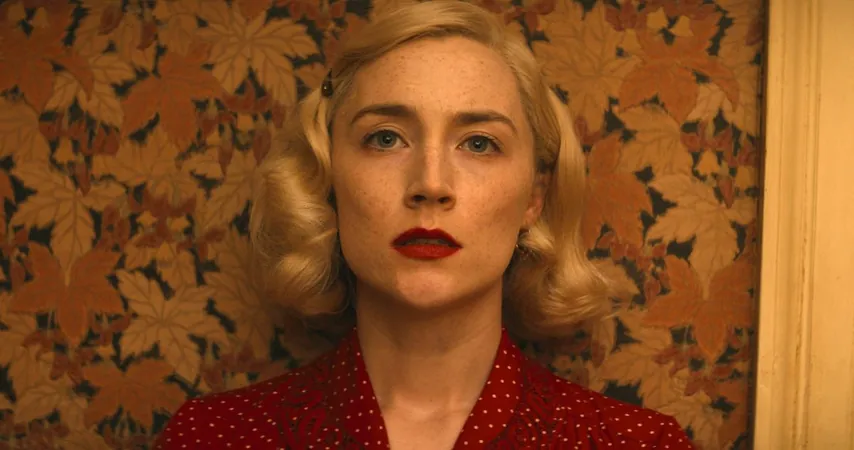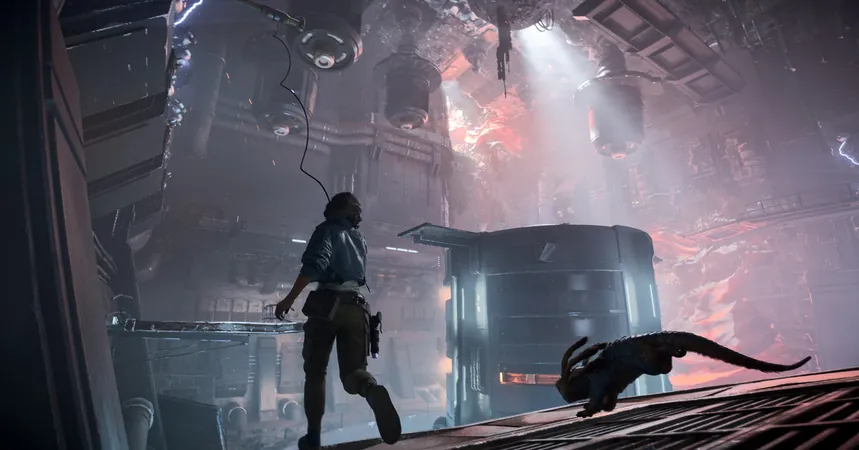
Why "Blitz" Is Steve McQueen's Most Disappointing Film Yet
2024-10-11
Author: Jessica Wong
Introduction
Steve McQueen, the acclaimed director behind groundbreaking films such as "12 Years a Slave" and "Widows," has an impressive and varied filmography that showcases his ability to tackle complex themes and emotive storytelling. However, his latest film, "Blitz," an attempted historical drama set against the backdrop of World War II, has left critics questioning whether he has crossed a misstep in his illustrious career.
Plot Summary
Released amidst high expectations, "Blitz" provides a sentimental narrative that follows a young boy named George, portrayed by Elliott Heffernan. George escapes a train transporting children to safety in the countryside, making a perilous journey back to London in search of his mother, Rita (played by Saoirse Ronan). Although the film has noble intentions—aiming to portray the myriad struggles of wartime London—the narrative structure struggles to deliver a cohesive and compelling story.
Critical Reception
Critics have been vocal in their disappointment, suggesting that while McQueen's heart is in the right place, the execution falls short. The film's pacing is hampered by clunky transitions and repetitive scenarios, as George navigates a series of misadventures—from encounters with gangsters to various heart-wrenching moments that aim to highlight the societal fabric fraying under wartime pressure. However, rather than maintaining momentum, these episodes often feel forced and disconnected—reminiscent of a disjointed Dickensian plotline without the underlying narrative strength.
Character Development
While the cinematography captures the grim atmosphere of London under siege, "Blitz" falters in its attempts to develop the emotional depth of its characters. Instead of immersing audiences fully in George’s perspective, McQueen frequently veers off to explore Rita's side story, which diminishes the intensity of George’s plight. Critics have drawn comparisons to films like Martin Scorsese's "Hugo," where a child’s perspective feels muted by adult interventions that ultimately detract from the experience.
Themes and Societal Critique
At its core, "Blitz" aims to challenge traditional representations of wartime Britain, portraying a mixed-race protagonist struggling in a chaotic environment. George's backstory—his Grenadian father deported before his birth—serves as a poignant reminder of the racial tensions and prejudices that pervaded society, even in desperate times. However, despite these ambitious themes, "Blitz" often feels like it bites off more than it can chew, leaving viewers caught in tedious tangents rather than an engaging narrative.
Musical Elements
The film also delves into the aspects of musicality, with moments of lively jazz performances and nightclub scenes that attempt to inject energy into the storyline. However, rather than enhancing the narrative, these sequences often feel like awkward interludes that disrupt the flow, leading to a sense of absurdism that overshadows the film’s serious themes.
Conclusion
In the end, "Blitz" raises more questions than it answers, challenging audiences to reconsider their perceptions of war and heroism yet failing to safeguard a compelling and gripping tale. It serves as a reminder that even acclaimed directors like McQueen can falter when attempting to navigate the complexities of storytelling without a strong, cohesive foundation. As viewers walk away from "Blitz," they may ponder not just the chaos of war, but also the importance of narrative discipline in conveying heartfelt stories. While "Blitz" is not a total failure, it undoubtedly stands as the least remarkable entry in McQueen’s filmography, inviting both disappointment and hopeful anticipation for his future projects.



 Brasil (PT)
Brasil (PT)
 Canada (EN)
Canada (EN)
 Chile (ES)
Chile (ES)
 España (ES)
España (ES)
 France (FR)
France (FR)
 Hong Kong (EN)
Hong Kong (EN)
 Italia (IT)
Italia (IT)
 日本 (JA)
日本 (JA)
 Magyarország (HU)
Magyarország (HU)
 Norge (NO)
Norge (NO)
 Polska (PL)
Polska (PL)
 Schweiz (DE)
Schweiz (DE)
 Singapore (EN)
Singapore (EN)
 Sverige (SV)
Sverige (SV)
 Suomi (FI)
Suomi (FI)
 Türkiye (TR)
Türkiye (TR)